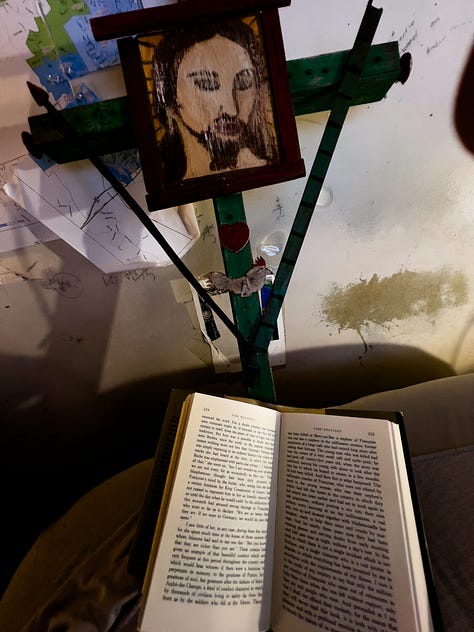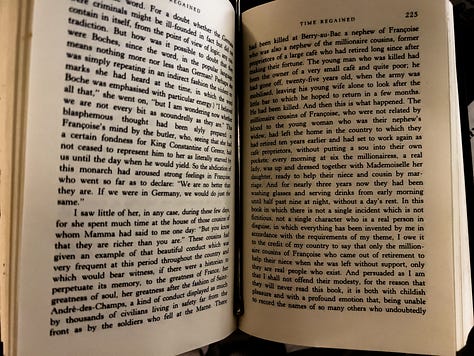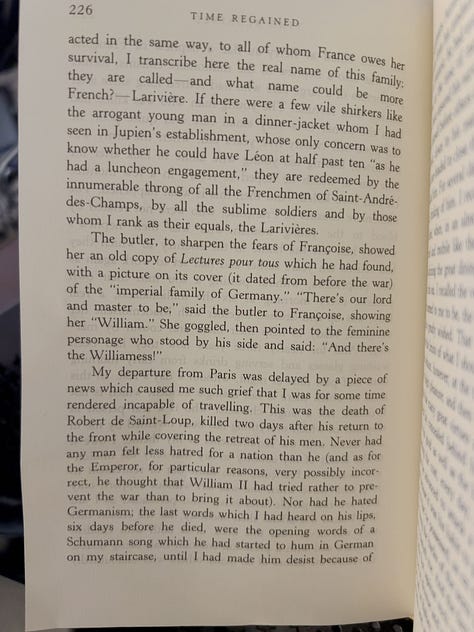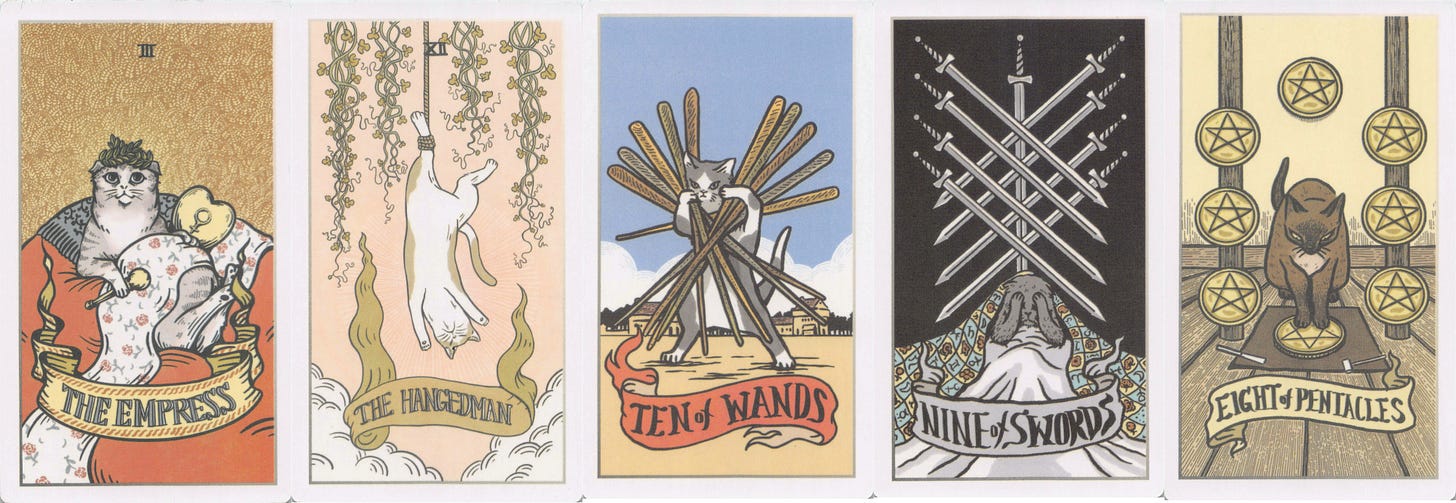SOMEONE asked:
What do you say about THIS the Narrator says in “Time Regained”?
“In this book in which there is not a single incident which is not fictitious, not a single character who is a real person in disguise, in which everything has been invented by me in accordance with my theme.”
He went on to say that the “only real people who exist” are the “millionaire cousins of Francois” who helped their niece.



Abracadabra. I illuminate. I am not a computer. Like Proust, I was a human with a liver and a spleen and a stomach and a room of my own. Who shed luminance from the window unto thee. Who shed luminous skincells that glint like snowflakes as they fell unto thee. But back to the querytheme.
Proust delights in mirroring effects, from the ontological level, i.e. the Plotinian interplay between altitudes — allllll the way down to the characteristic formal technique that, outspreading its divers repetitions like amulets sewn into a flying carpet, of his metaphor.
The Proustian metaphor.
His metaphors coil — typically you will notice a progressive abstraction, comparable to a tapestry that vertically develops the sequence flower-star-splotch then curls back to *flower*, the *particular*, from the extremity of resolving *particular* to *geometrical* to *impressionist* or *innate detail* to *linear detail* to *shade detail*. Like Leonardo flying *through* a personage (like the Mona Lisa) to the anatomy or the line sketch underneath the personage, unto finally the Leonardo mysterious distances, space of muddle and dream. But here I reached my own vague distance, because Proust is never unclear in the slightest. If he gives you a paradox, as occasionally he will, it is handed over directly, with a bit of mauve lace to tie it — or shining gift-wrapping.
Proust as well loves lensing effects, such as the ideal proustian sentence in its tentacular structure where the opening clause gets answered in the final clause, while between them lies a shimmer of clauses, an enchanted forest, which pursue to the end their own artistic completions, perhaps a thousand forest paths, as voluminous as the trails of the roots of the world. These trails are — not exhausted, as you might encounter in many a modern, but allowed each to reach a nice stopping point with some sort of punch of humor, sensation, or insight — completed, altogether separate in their beginning and ending, from the 1st and the last clause, which remain connected. I will return to this point, so as to state it again.
I also think it is he is being concrete in the sentence one asked about, in saying (as he does elsewhere and even throughout) that he does assign final formal finality, ultimate solidity, the only possible eternity, to literature and not to life. That between them the crown must finally go to the fairest queen, and queen is not life. A claim that the latter life was the second sister and that she only ever could exist through art, and without art would possess an unfinished and illegible disintegrating nature. That is, he would obviously anticipate that future critics will ‘point out’ that in fact x character was inspired by y, but he is making this absolute statement because it's polemic, and a neat expression of an approach In Search Of Lost Time in its entirety takes when it comes down to the interplay, and agon, such as it can be, between art and life.
The way he moves in the same sentence from doing that to a very worldly and embodied Marcel which talks about France saved by the acts of everyday persons, of households lower in the chain of being than the spheres he contacts and the one he operates in (but of course Marcel also can account for the brothel — in the end there is the sphere of domestic existence that is least touched is the broader political working class.
Sacrifices that will never be sung in art, much less remembered in life — except in his book — and he only names the one —
Keep reading with a 7-day free trial
Subscribe to Nicholas will Keller to keep reading this post and get 7 days of free access to the full post archives.

